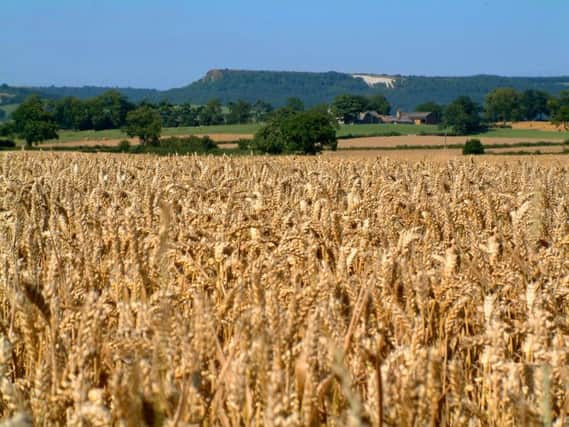Comment: Quality control just got a lot harder


The challenges facing the world’s food producers are well documented: balancing the ever-increasing demands of a growing population with catering for a more ‘affluent’ diet, increasingly unpredictable weather, global conflicts, limited land availability and farm yields that have ‘plateaued’ for many key crops.
You would think all available technology should be deployed to help meet the challenge; and, that there would be a real push to deliver further technological advances. But from a farmer’s perspective this ‘joined up’ approach doesn’t seem evident.
Advertisement
Hide AdAdvertisement
Hide AdThe majority of food crops produced in the EU use ‘plant protection products’ to ensure reasonable yields of high quality food. These products undergo strict safety testing over years before they are licenced for use to control weeds, insects and fungal diseases.
The farmer also has to be qualified and top up their training every year. Machinery is tested annually and the use of products is ‘prescribed’ by an agronomist. These products aren’t cheap, so they’re only used when absolutely necessary.
After application, annual independent checks ensure they are being used in accordance with legal requirements. Finally, the crop is tested for residues.
Going back to my initial point, the European Commission now assesses protection products not by ‘hazard’ posed not ‘risk’. What’s the difference? Well, while ‘risk’ looks at whether harm may result; ‘hazard’ assumes harm will be done. A car, my razor or one of our family cats could pose a risk but none could be called hazards.
Advertisement
Hide AdAdvertisement
Hide AdThis seemingly minor change means many existing products could be banned. One of them is a group known as ‘triazoles’; anti-fungal products used on a range of crops and an ingredient of anti-fungal creams for treating athletes’ foot. They are vital to control some virulent plant diseases which reduce yield and quality. Without triazoles my ability to produce quality wheat for bread-making would be severely reduced.
Having embarked on this new direction, you’d think that researchers are working on alternatives. An obvious area would be research into harnessing naturally occurring ‘resistance’ in plants – but no! Progress in genetics has been severely restricted in the EU to the extent that many industry researchers have upped sticks and cleared off to the USA.
Farmers are very concerned about the potential loss of up to half the available plant protection products. Yields and quality will reduce; it is almost inevitable that prices will rise as a result and it isn’t certain this will be enough to make up the loss at the farm gate. For some crops, especially vegetables, it will be a real challenge to meet market demands.
Europe will end up importing much more food to make up the shortfall and recent studies have shown much higher residues in imported food products. It is likely that this imported food will have used the very same products withdrawn from use in Europe, and quite possibly grown on land reclaimed from the natural environment to feed growing demand from within the EU.
Richard Bramley farms at Kelfield near York and is a member of the NFU.